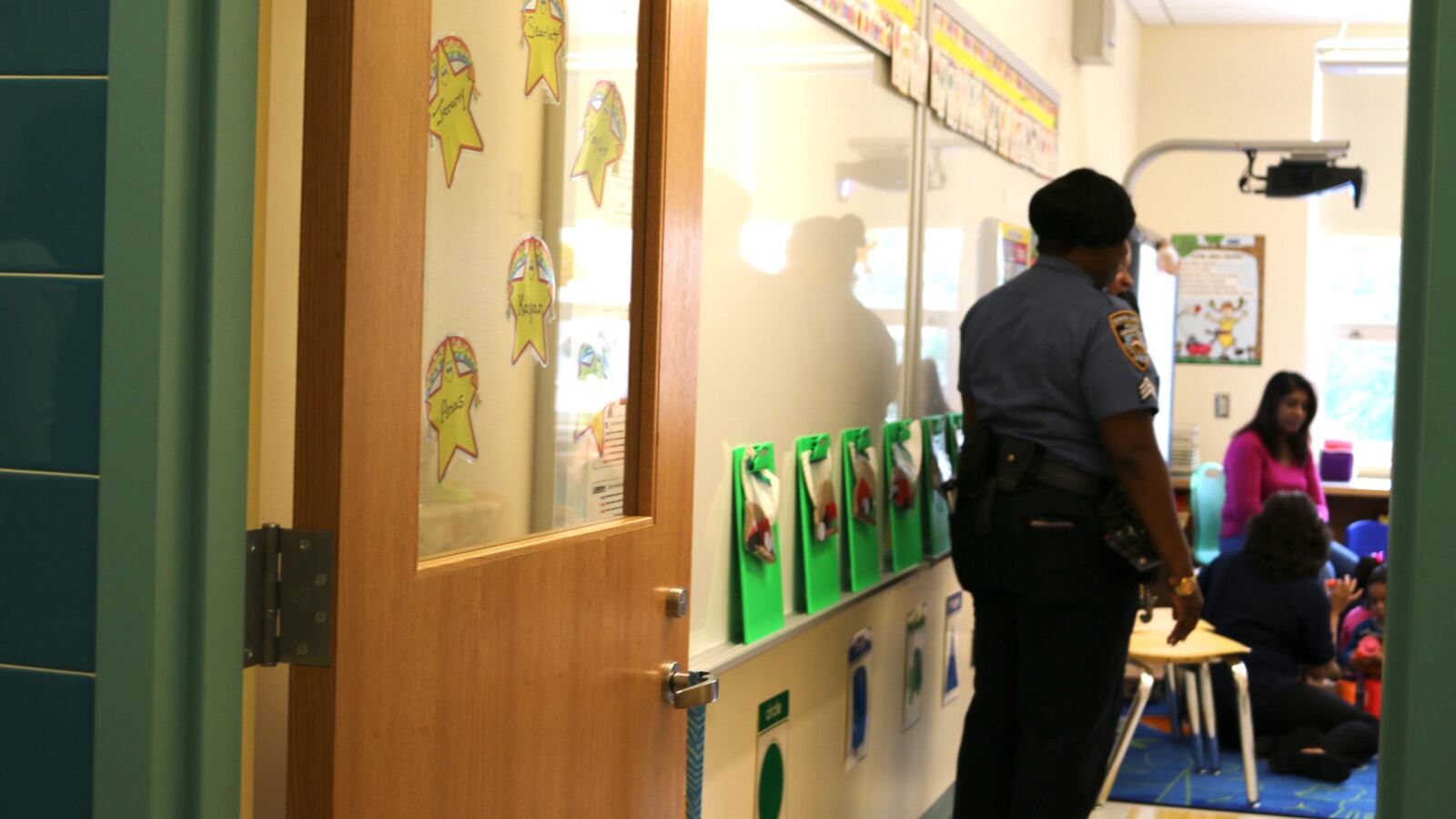It’s been a year since 17 people were killed at a Parkland, Florida high school, sparking a national conversation about gun control and a race to ratchet up school security.
Florida lawmakers, for instance, passed legislation requiring every public school in the state to have an armed guard. A Trump administration commission recommended armed school personnel, among other safety measures. Already, 71 percent of U.S. public high schools have at least one law enforcement officer who carries a gun.
While some argue that these efforts are increasingly necessary, others point out that school shootings are rare and fear that more security will backfire — making schools less conducive to learning and making it more likely for students of color to be funneled into the criminal justice system.
Now, two new academic studies provide strong evidence that some of those concerns are valid. Both released this week and looking at large groups of students, they are among the first research to directly link more police to worse academic outcomes for students.
In one case, adding police to Texas schools led to declines in high school graduation rates and college enrollment rates. Another found that more police in New York City neighborhoods hurt the test scores of black male students.
“The results of both those studies, for us, put numbers to what we already know and what the experiences of young people are,” said Maria Fernandez, a senior campaign strategist for the Advancement Project, which advocates for less punitive discipline in schools.
The papers strongly suggest that police are the cause of those negative outcomes, though they aren’t definitive proof. And they don’t tell us anything about whether the police made schools safer overall. Still, they underscore how efforts to do so can have unintended consequences.
In New York City, more police in neighborhoods hurt achievement and attendance for black boys.
One of the studies looked at the academic performance of students in high-crime neighborhoods in New York City that saw an influx of police officers instructed to make arrests for low-level offenses and conduct frequent searches from 2004 to 2012.
It found that young black boys from those neighborhoods saw test scores drop as a result of the increased police presence. Black male students as young as 11 saw those effects, which were even worse for older students, up to age 15. (The study does not have data for high school students, who might have been even more affected.)
The increased police presence did decrease violent crime in targeted neighborhoods — something that might be expected to help students do better in schools. But black boys were more frequently absent from school, by nearly 1.5 days a year, due to the policing program, potentially to avoid the threat of arrest in surrounding neighborhoods.
“Aggressive, broken-windows policing may have negative effects by undermining trust in authorities, including schools and teachers, and by leading to withdrawal and system avoidance,” write researchers Joscha Legewie and Jeffrey Fagan in the study, published in a peer-reviewed journal. “High rates of direct or indirect contact with police may also create stress and other health and emotional responses that undermine cognitive performance.”
The program had no effect for Hispanic students or black girls. Tellingly, white students were not included in the study because so few lived in targeted neighborhoods..
In Texas, hiring more school police hurt high school graduation and college attendance rates.
Meanwhile, the Texas study examines what happened when school districts won federal grants to hire police to work in schools between 1999 and 2008.
Students in middle or high schools that received a three-year grant were 1.7 percentage points less likely to graduate high school and 1.9 percentage points less likely to enroll in college, compared to similar students in the same district in other years.
It’s not clear what explains these results. Unlike in the New York City study, there was no indication that these declines were steeper for black students, or that the greater police presence meant students were disciplined more often in high school.
But there was evidence that more security led to more disciplinary infractions in middle school, particularly for low-level offenses and for black and Hispanic students.
Researcher Emily Weisburst says that might have long-term consequences.
“A student’s experience with school discipline at an early age has potential ramifications for high school graduation and college enrollment,” she wrote in the study, published in a peer-reviewed journal.
“Negative school discipline experiences could shape the way that students are perceived by teachers, school administrators, and peers, and may also affect a student’s confidence and attachment to school.”
Correction: A previous version of this story said that 17 students died in the Parkland shooting; it was 17 people, not all of whom were students.


